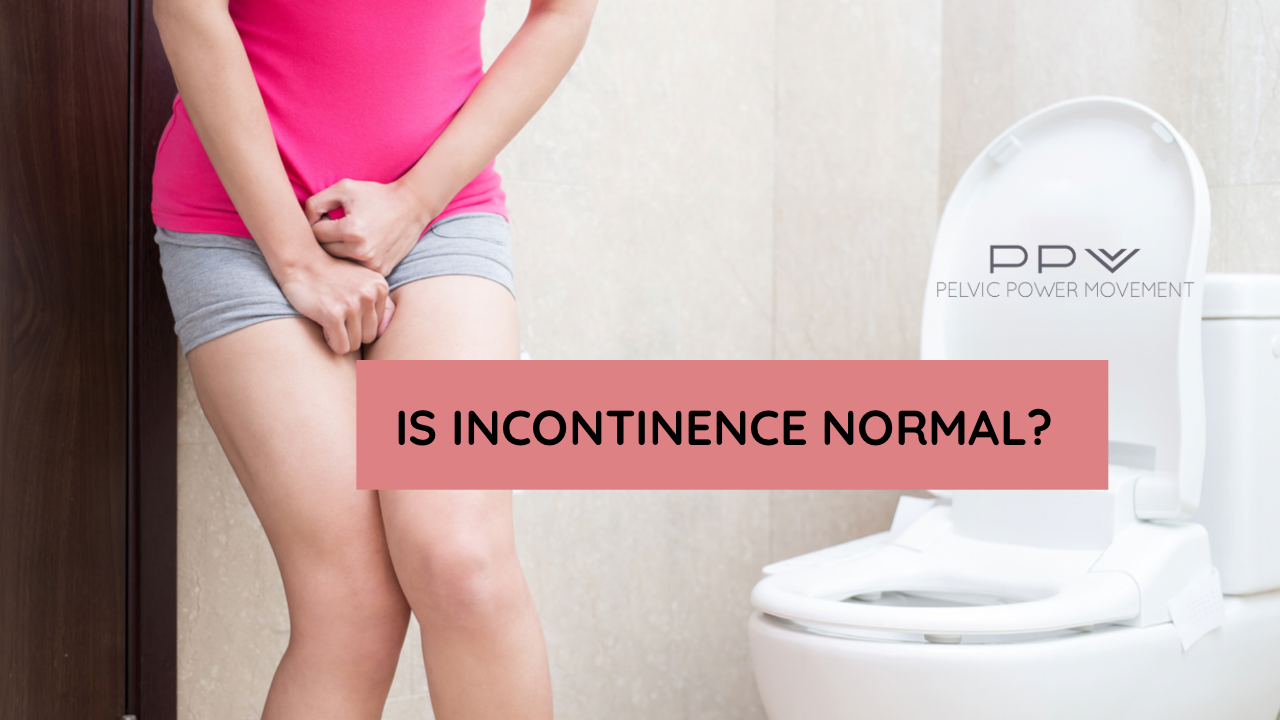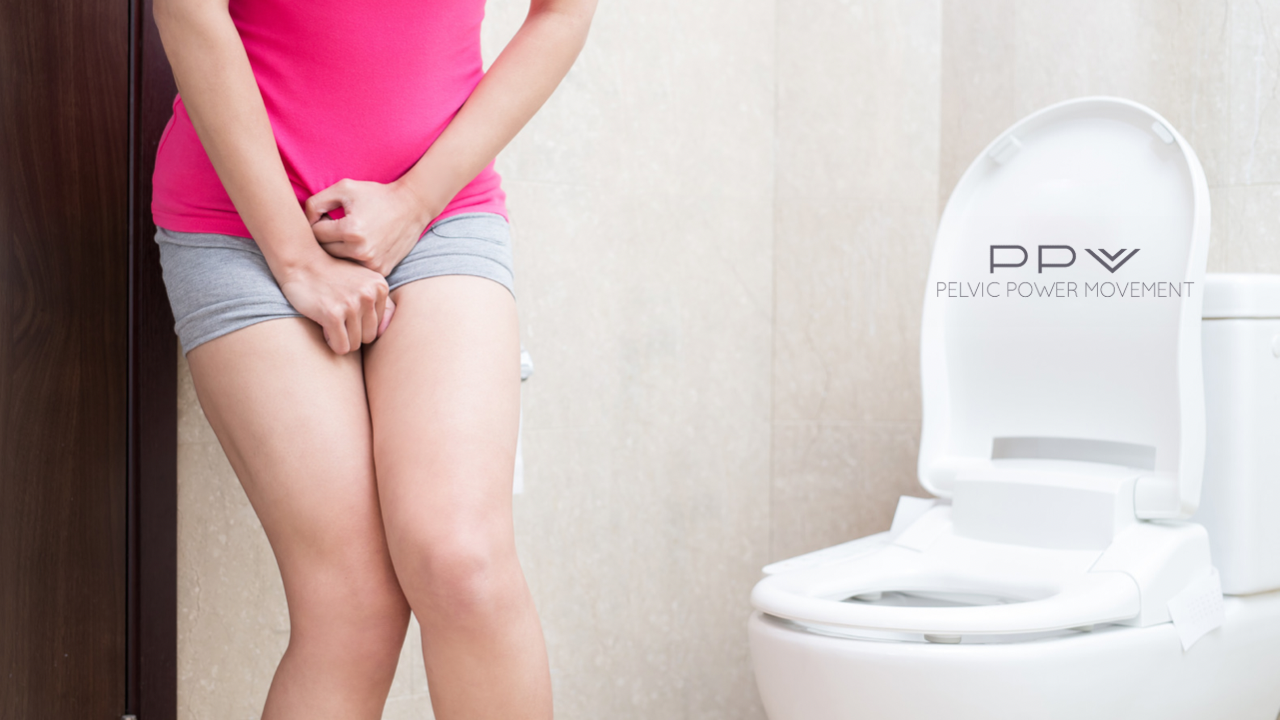There are different types of incontinence…who knew!

Did you know that according to Incontinence UK, “rapid growth has been predicted for the global incontinence market between now and 2026”?
No, no, no, this is all wrong!!! Why are these companies getting all our money? We need to resolve this problem, not mask it!
When it comes to leakage, there isn’t such thing as “the norm”. Incontinence comes in different forms…none of which are just part of “getting older” or a “standard part of life after childbirth”. Yes, Leakage is very common, but it is not normal, and no one should have to live with it. Every day I speak to women who experience urinary incontinence, and it makes me so sad when I hear how long they have been living with it. I just want to reach out to them all, and tell them there are solutions.
Did you know that only 45% of women experiencing incontinence have seen their doctor, leaving a considerable percentage of women who are not being treated at all and are living in silence about their problems. Urinary incontinence can lead to embarrassment, avoidance of sex, social isolation, not to mention rashes and urinary tract infections. It is my mission with the Pelvic Power Movement to stop this, and together I believe we can stop this.
So, what is “normal”?
A small amount of leakage after childbirth is very common and often considered a normal part of the trauma that our bodies are put through. However, if that level of leakage is affecting our quality of life or if that leakage is becoming a longer-term problem, then it’s time to say enough is enough. That’s the time that “normal” stops being “normal”. Women should not be peeing their pants…fact!
Urinary incontinence is very common during pregnancy due to hormones and the relaxing of the pelvic floor muscles in preparation for childbirth. It can also be caused by added excess weight weakening the pelvic floor muscles. Both of these things should only be temporary after labour, and if they aren’t, the alarm bells should be ringing. That’s when it is time to take action. On average, in the three months following childbirth, a third of women will experience leakage, but only half of them will seek help from a medical professional—a scary statistic and one that needs to change.

Let’s take a closer look
It’s time to look at the two main types of incontinence…yes, there is more than one and many women experiencing leakage have absolutely no idea. Why would anyone know when this subject is never discussed? It remains taboo, but times are changing, albeit very slowly.
Stress Incontinence
Stress incontinence occurs when your bladder leaks urine during physical activity. It may also happen when you cough, laugh, sneeze, jump, or lift something heavy due to the extra pressure exerted on your bladder. Most cases of stress incontinence are due to weakened pelvic floor muscles, or overly tight pelvic floor muscles, particularly following childbirth. This type of incontinence is experienced by 40% of women at some point in their lives.
Urge Incontinence
Urge incontinence occurs when you have a sudden urgent need to pass urine, but then leakage occurs before you have time to reach the toilet. Many women experience "key in the lock syndrome", in which a sudden urgency occurs as soon as they place their key in their front door. There can be many other triggers for this also, just seeing a toilet for many can invoke a strong urge to pee.
Urge incontinence can also involve needing the bathroom more often than usual, both during the day and night. Urination is a partnership between your bladder and the muscles of your pelvic floor. If that partnership isn’t working properly and the bladder muscles contract at the wrong time, there can be problems. This condition can be a symptom of an unstable or overactive bladder or a nerve problem. It can also occur during or following menopause due to the reduction in oestrogen in the body. However, in some cases, the exact cause is unknown.
Solutions not problems
Please don’t panic if you are experiencing either of these conditions, as there are many ways that urinary incontinence, of whatever kind, can be treated. Some of these solutions could include the following:
- Lifestyle changes such as weight loss or cutting down on caffeine and alcohol.
- Pelvic floor exercises – which could include, but not exclusively strengthening your pelvic floor muscles by squeezing them in different ways.
- Bladder training – training your bladder to wait longer between needing to urinate and passing urine.
One of the biggest myths about pelvic floor exercises is that they are not done until after labour. Yes, they can improve pelvic health concerns such as prolapse and incontinence caused by childbirth; this is true. But (and this is the important part), it is actually recommended that they be used as a preventative measure instead of just a corrective measure. Starting pelvic exercises during pregnancy will lower your risk of experiencing urinary incontinence and other pelvic health concerns, both after childbirth and later on in life.
Sadly, most of us aren’t given this crucial information at the time that we need it. We then find ourselves desperately trying to pick up the pieces later on. More education is required for expectant mothers to get them started on the right path early. This is something I push for every day.

My mission…
At the Esther.Health Physiotherapy clinic and in the Pelvic Power Movement, I aim to educate as many every woman as we can on pelvic health. I want them to know how their vulva should look and feel. I want them to understand how their pelvic muscles work and how to tell if something is wrong. I want them to improve their prolapse symptoms and return to the activities they love. And (yes, there is more), I want every single woman experiencing urinary leakage to know how to find a better, leak-free life for themselves. Everyone deserves that.
If you are struggling with incontinence and would like help, then please reach out to us at Esther.Health Physiotherapy clinic. Here we can provide a variety of treatment options to suit you. Find out more at www.esther.health or call 01780 693 061.
If you aren’t already part of our supportive free online community, then come and find us in the Pelvic Power Movement Community | Facebook
This January 2022 we will be running #dryjanuary challenge. A little spin on the usual take of dry January. I will be offering top tips all month to help you get leak free. So invite your friends and lets start taking our mission seriously.

